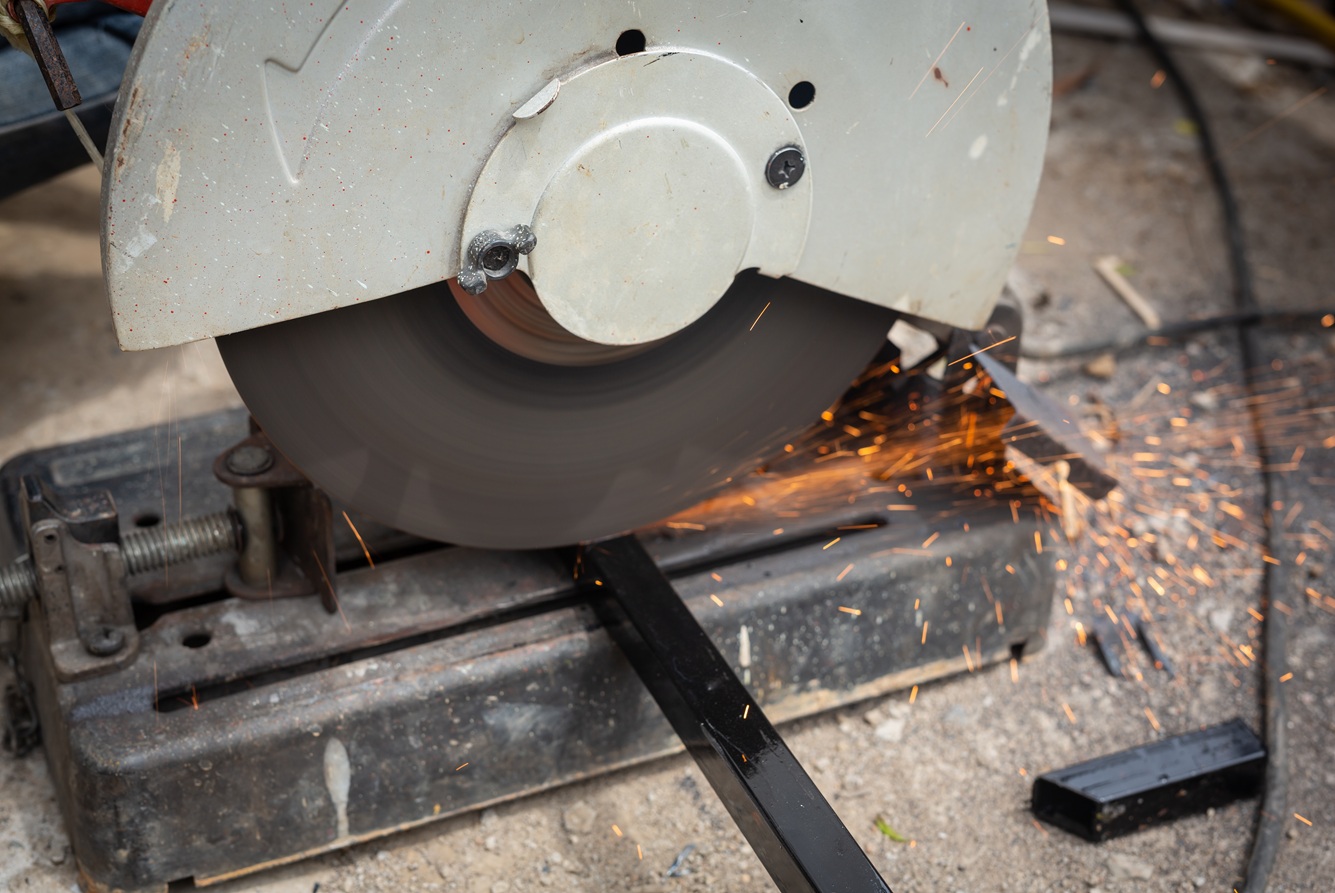

Precision is the cornerstone of metalwork. From initial cutting to the end product, precision in sheet metal cutting demands adherence to specifications. It’s not just about meeting exact measurements, but a necessity to maintain the product’s integrity. It directly impacts the performance, appearance, and safety of the product. In industries such as construction, automotive, and aerospace, the need for precision is even more pressing.
This blog explores the tools and techniques that ensure accuracy in metal shearing and cutting. It also discusses how metal-cutting machines ensure precision every time.
A sheet metal cutting machine is a tool designed to cut thin metal sheets with accuracy. It can be handheld, electric-powered, hydraulic-powered, or a CNC cutting tool. The use of a cutting tool depends on the project requirements. Modern cutting tools can create straight-line cuts, curved edges, or intricate shapes on a wide range of metals and materials. Precision matters in metal cutting, as it also helps achieve the goal of waste minimization, maintaining dimensional stability throughout the operation, and creating smoother edges.
Here are some key features of metal-cutting machines that help ensure precision every time:
Modern machines and tools equipped with features help create consistent items, making the process more efficient and repeatable.
Metal cutting and sheet metal bending are two different methods of deforming the metal sheets, but they work together to create the final product. Sheet metal bending is the process of bending the metal sheet at a certain angle or curve without breaking or tearing it. It’s crucial that bending follows accurate cutting, as any inconsistency in dimensions can affect the bend alignment, resulting in deformed or rejected parts.
Sheet metal bending machines play a crucial role in ensuring precision throughout the operations. Once the metal sheets are cut into smaller sizes, they are loaded onto the bending machine to be bent at the required angles. The following features of sheet metal benching machines help ensure accuracy and precision:
Sheet metal drawing is the process of putting a flat metal sheet into a die and creating a three-dimensional shape, such as a cup or container. It is important in projects where depth and shape are as crucial as length and width. Sheet metal drawing also requires precise operation to ensure that the metal doesn’t tear or thin during the deformation.
The metal industry is continually evolving, and technological advancements are occurring at a faster pace than ever. Over the years, multiple innovations have contributed to improved precision. Some of these innovations include:
The following industries or sectors depend on high precision:
This is not an exclusive list of industries, but these industries require unmatched precision and accuracy for operational and safety reasons.
Consider the following points when choosing a metal cutting machine:
Material Compatibility: Select a machine that is compatible with the chosen metal. Iron, carbon steel, and other hard metals can be difficult to cut, so choose accordingly.
Thickness Capacity: Select a machine that accommodates a range of material thicknesses. It will help avoid under or overpowered cuts.
Automation level: For large-scale operations, choose CNC tools for consistency and repeatability.
Along with choosing the right machinery, you also need to hire the right industry expert who can offer excellent metal cutting and bending services.
Precision isn’t a requirement only for large-scale operations. Every metal-cutting or bending operation, regardless of its size, requires precise results. We believe so at New Mexico Metals LLC. We are the premier metal supplier in Albuquerque, excelling in all aspects of metal-related operations. Whether you need complex shapes for a large operation or a simple metal cutting job for a DIY project, we are your best choice in Albuquerque.
If you need quality and precision metal cutting in Albuquerque, visit us.
1. Que: What makes a sheet metal cutting machine precise?
Ans: Advanced features, such as CNC controls, laser guidance, and sensor-based feedback systems, enable consistently accurate cuts.
2. Que: Can one machine both cut and bend sheet metal?
Ans: Usually, separate machines and tools are used for metal cutting and bending. However, integrated systems are available today that combine both functions.
3. Que: What’s the role of sheet metal drawing in the process?
Ans: Metal drawing is the process of creating three-dimensional shapes from a flat metal sheet. It uses a die to achieve the required result.
4. Que: How do bending machines ensure the angles are always correct?
Ans: Bending machines use angle settings, laser guides, and servo motors to bend the metal at the correct angle.
5. Que: Is laser cutting better than mechanical cutting for precision?
Ans: Laser cutting is known for its higher precision and cleaner edges. It can easily create intricate and complex shapes with relative ease, as compared to a mechanical or hydraulic cutting tool.